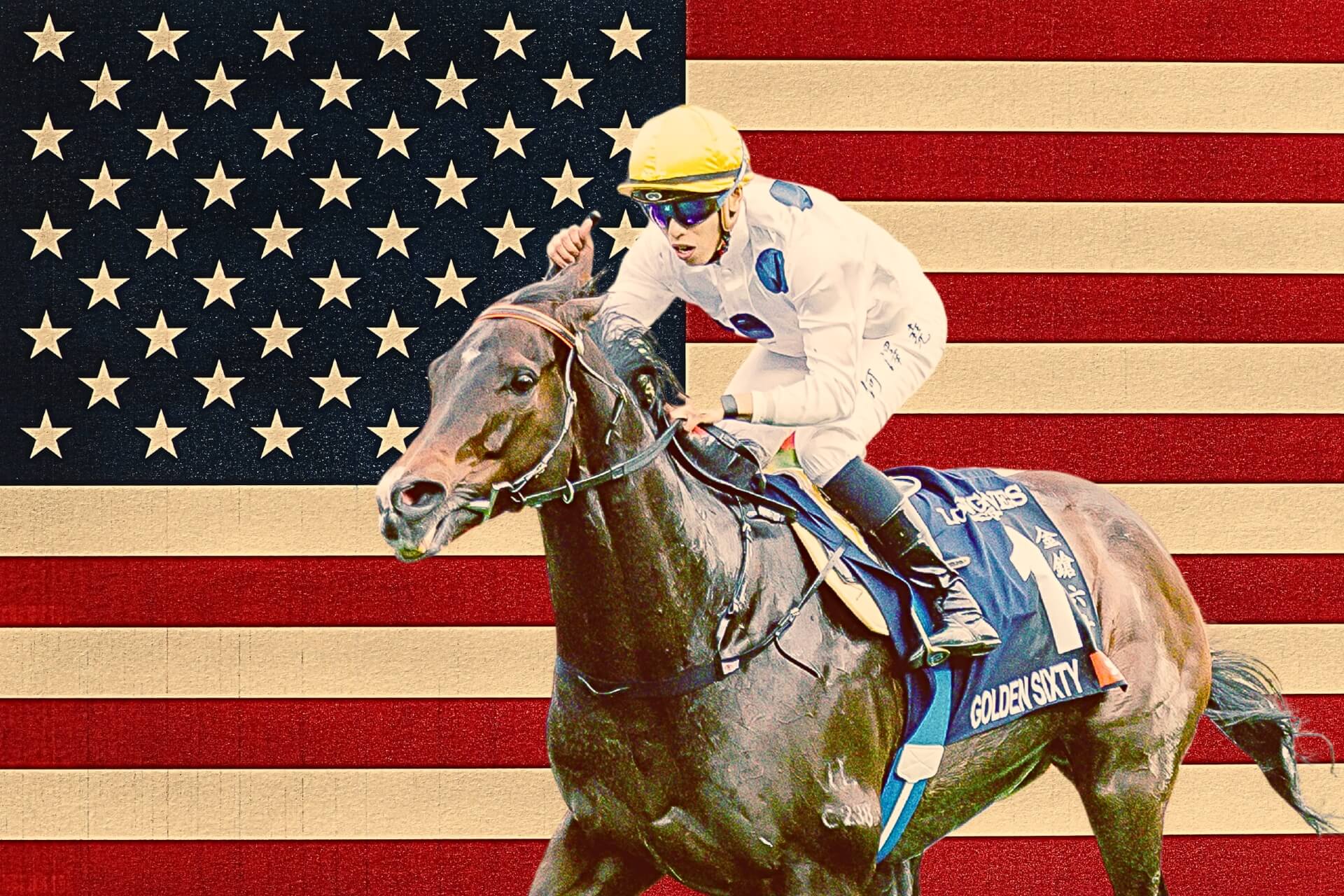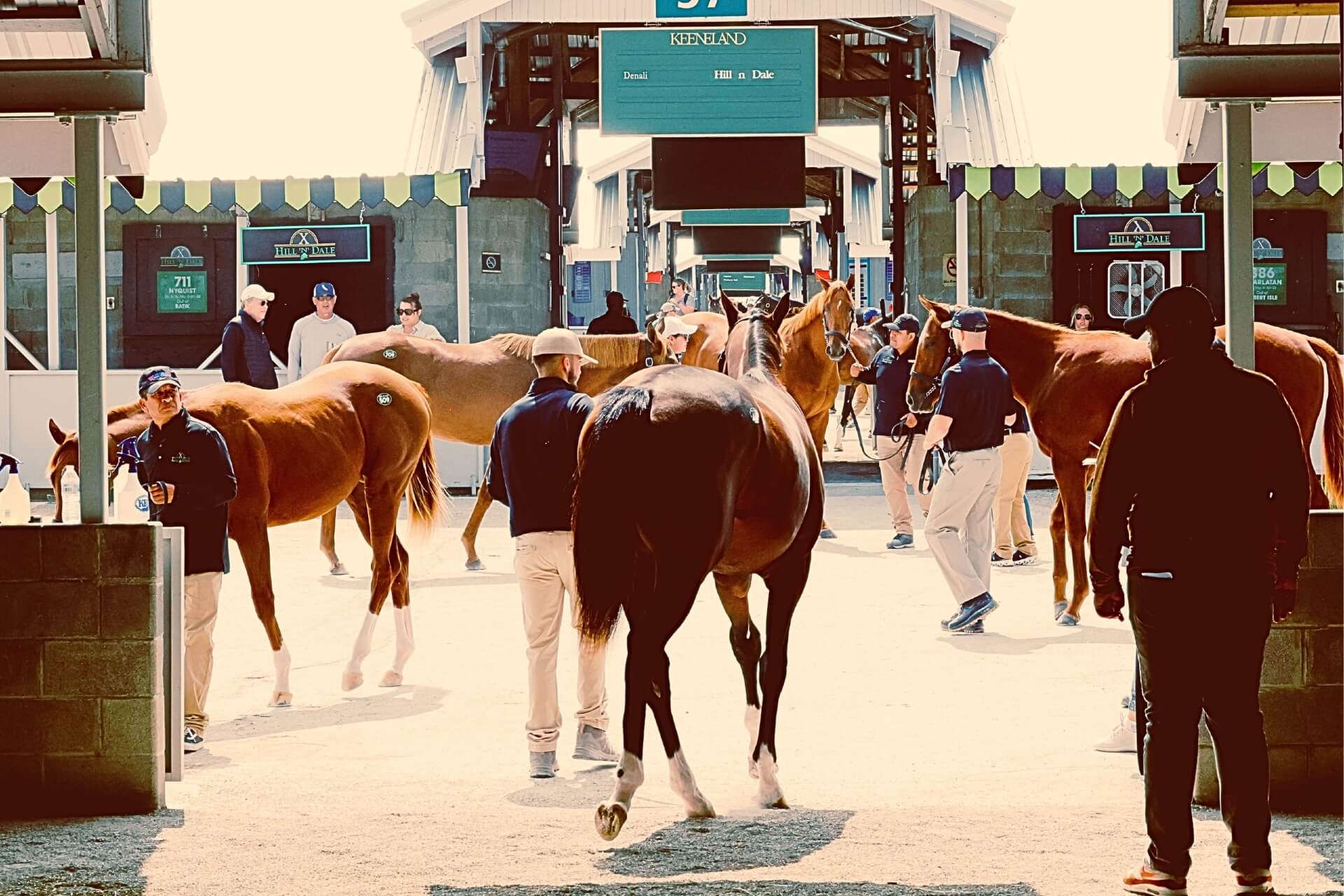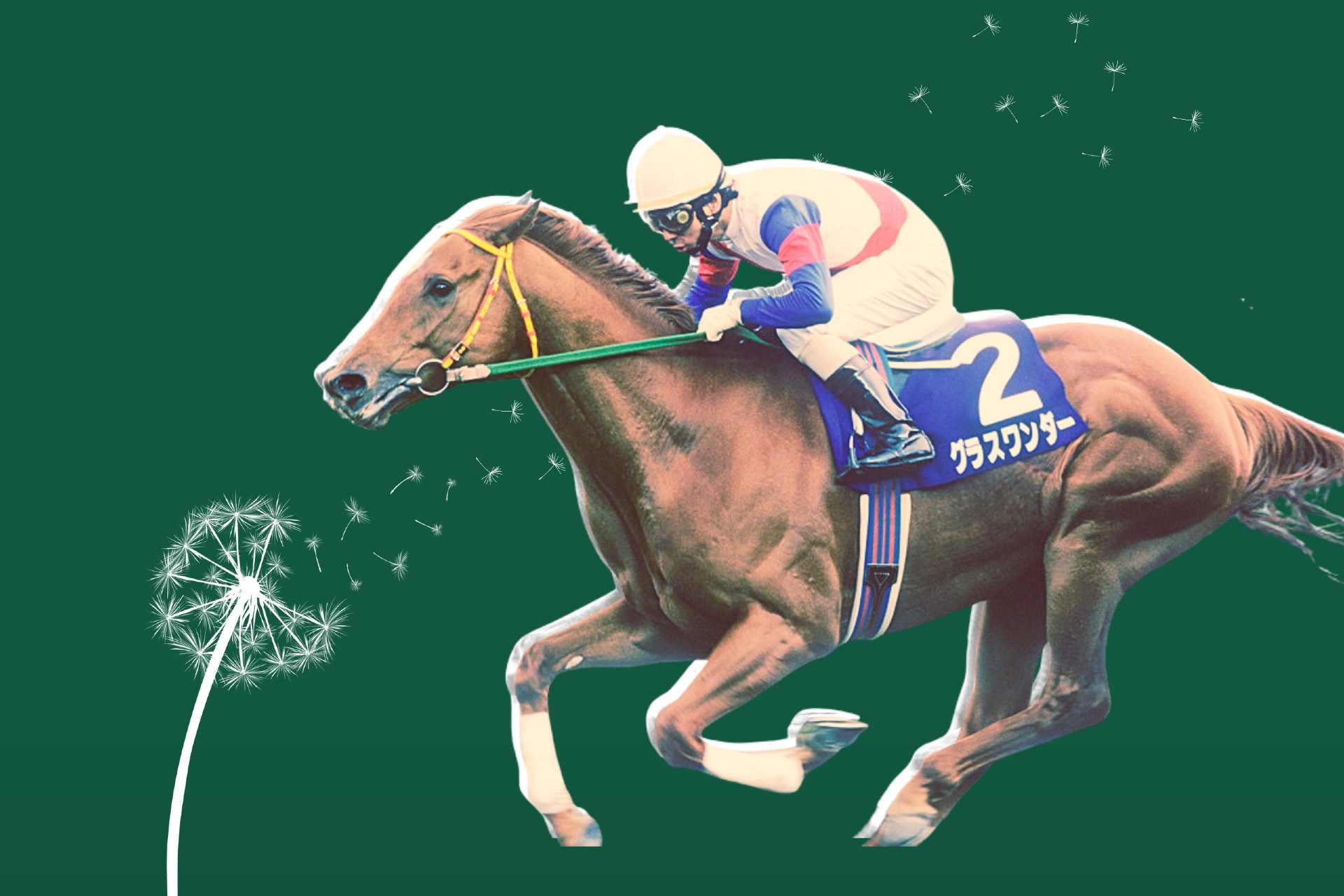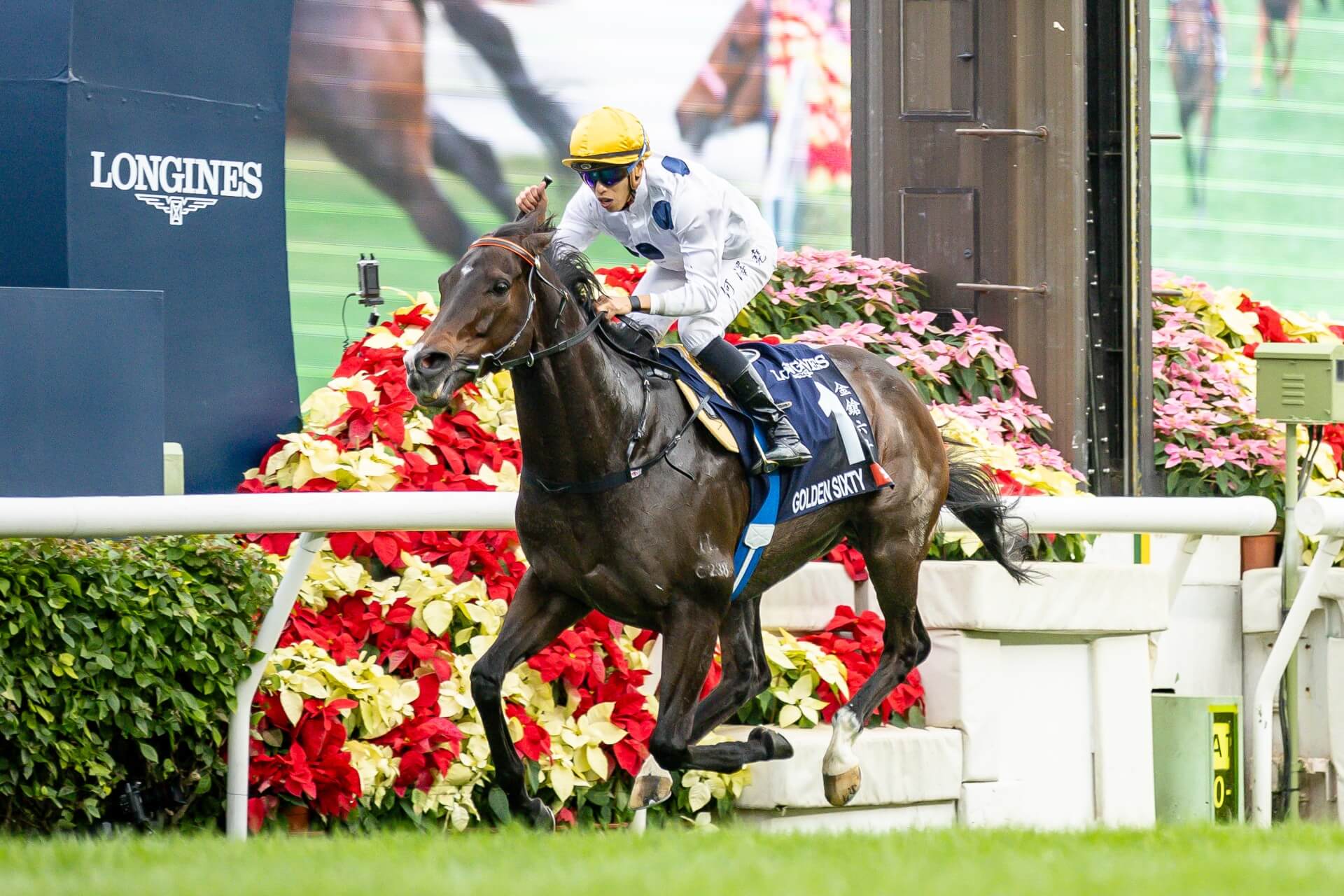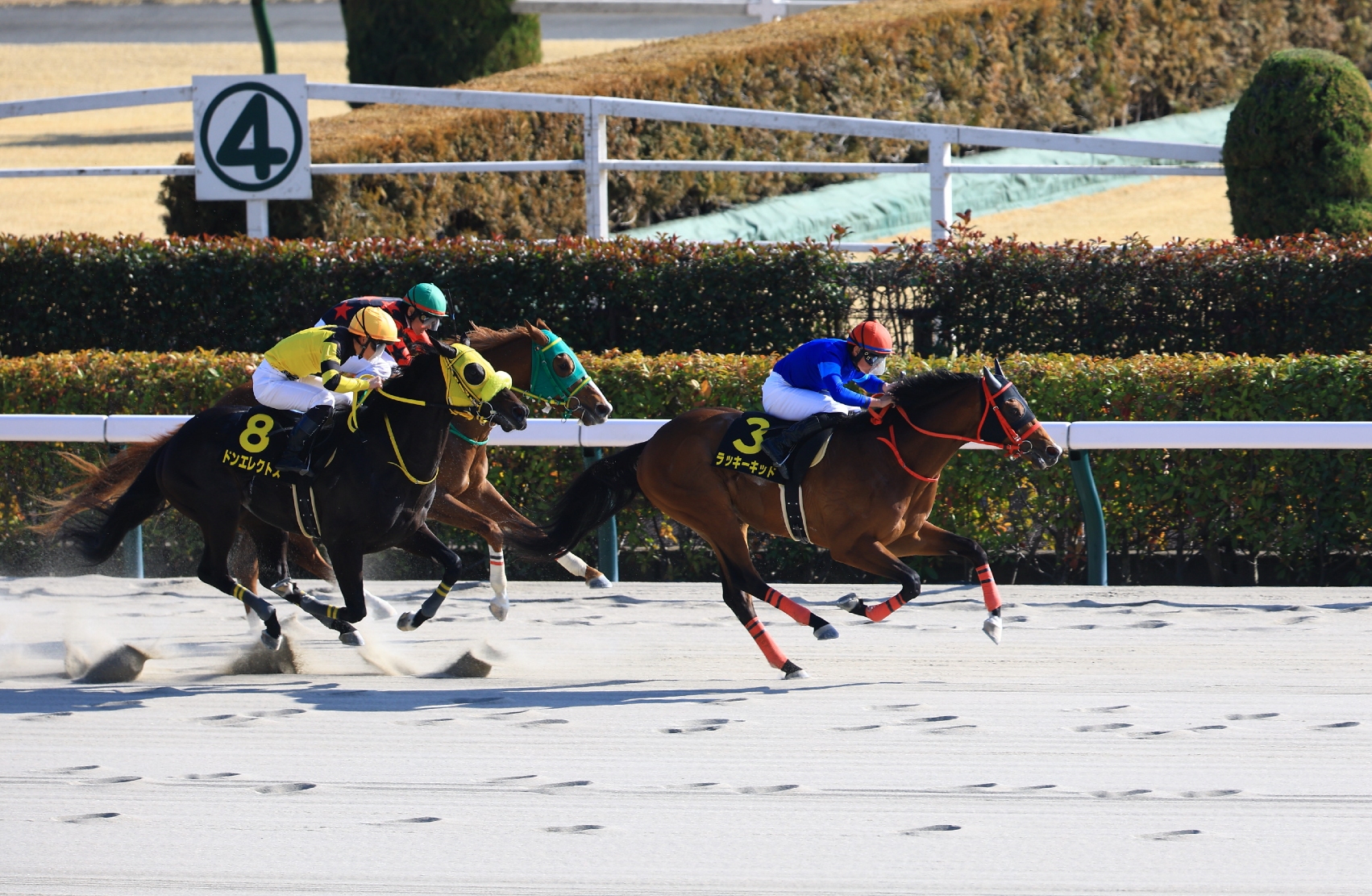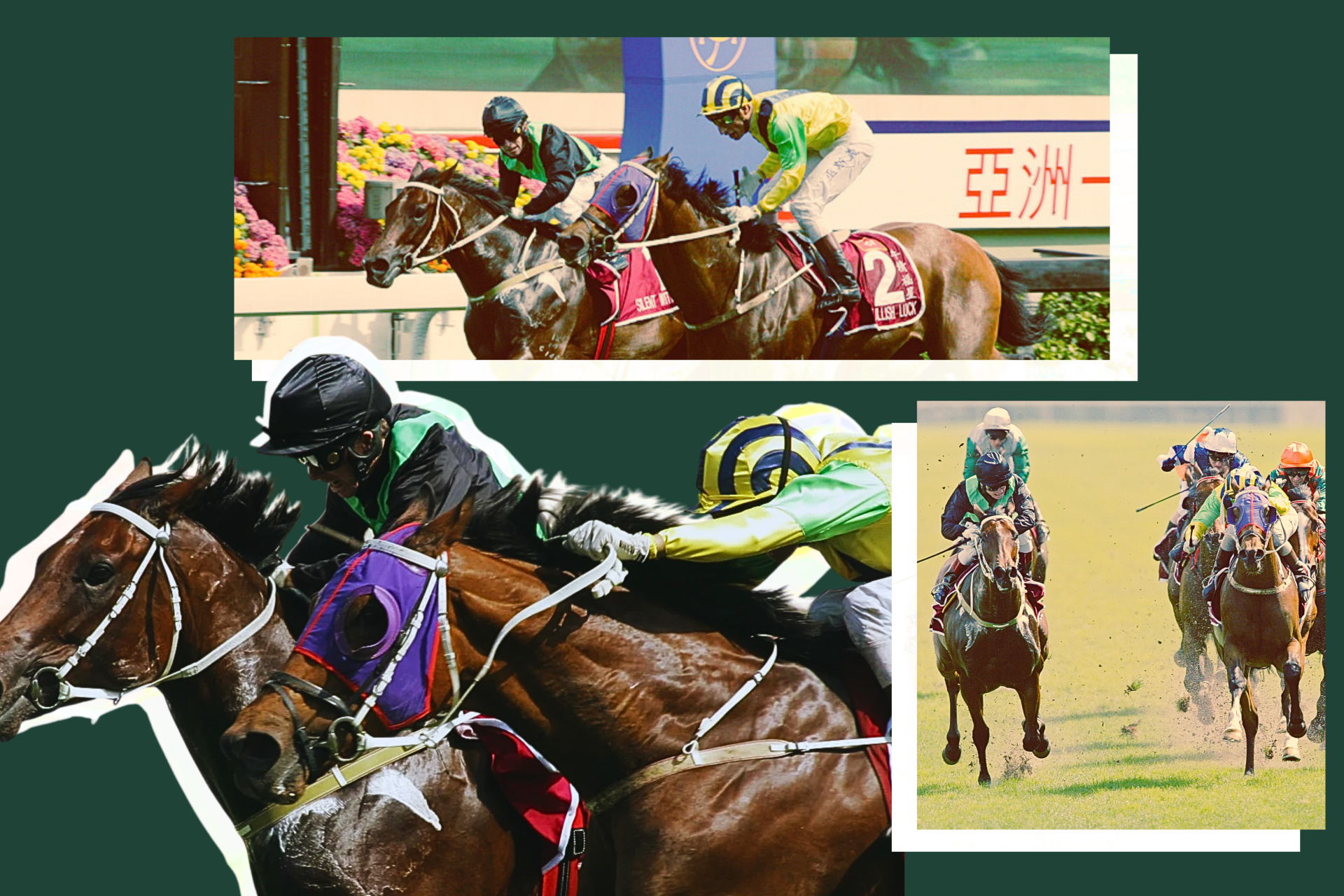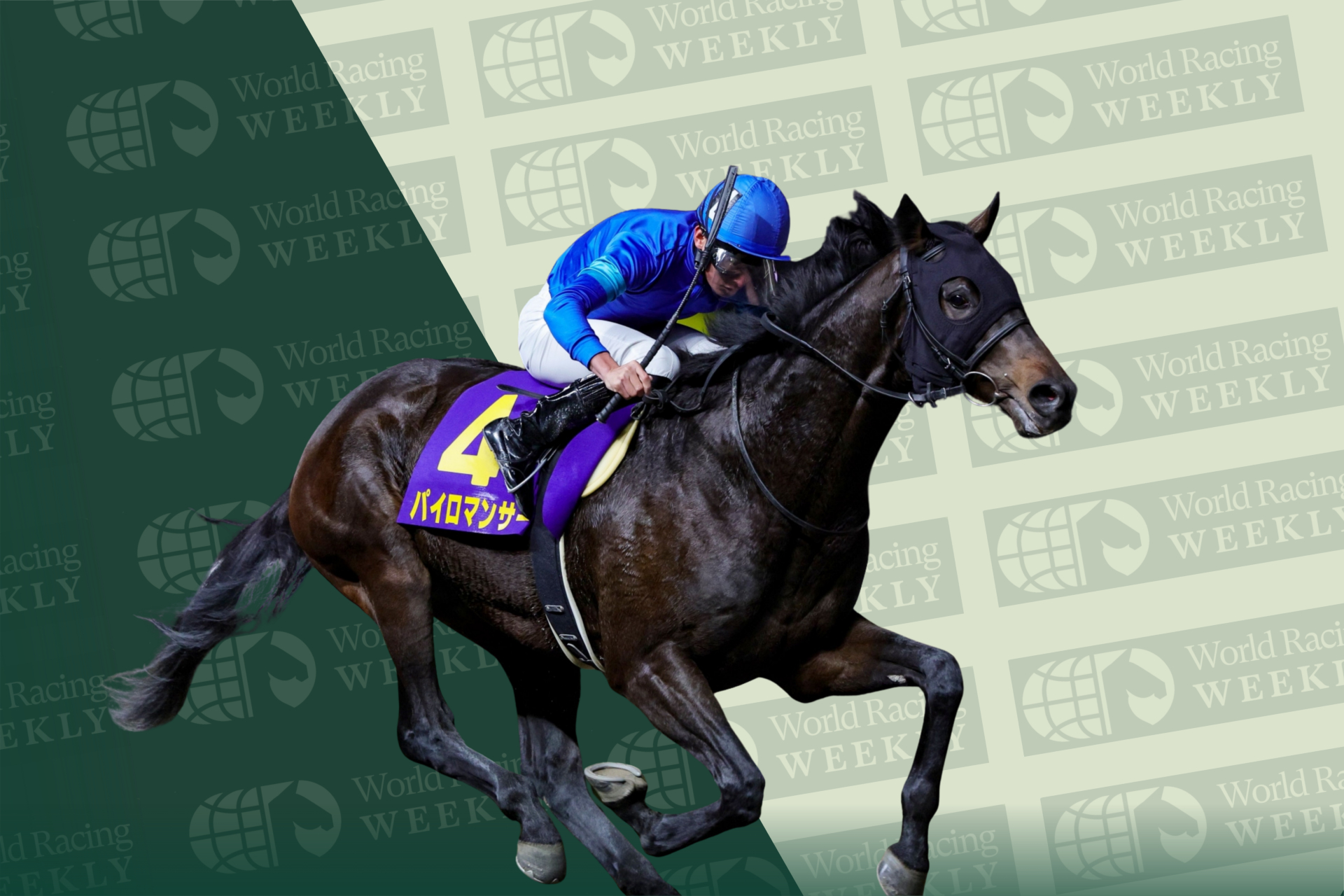Golden Sixty’s American Roots Resurface At Keeneland
A three-quarter brother to Hong Kong superstar Golden Sixty will attract global interest at the Keeneland September Yearling Sale.
TWENTY YEARS AGO, one of the greatest international stories of the past two decades began in the Keeneland sales ring. Fittingly, the latest chapter will unfold at this year’s Keeneland September Yearling Sale when the three-quarter brother to Hong Kong champion Golden Sixty is offered as Hip 345.
Golden Sixty sits comfortably upon Hong Kong racing’s ‘Mount Rushmore’: three Hong Kong Horse of the Year titles; 10 Group 1 wins including three Hong Kong Mile victories and three consecutive successes in its spring equivalent, the Champions Mile; 26 wins in total from 31 starts at Sha Tin; one of only two horses to sweep Hong Kong’s Four-Year-Old Classic Series, including a memorable triumph in the 2020 Hong Kong Derby; and the world’s highest-earning racehorse of all time upon his retirement in 2024, although he has since been surpassed by Romantic Warrior.
The Australian-bred gelding is celebrated as one of the recent global greats, but less recognised is a pedigree page filled with American black type. The genesis of the Golden Sixty story returns to the heart of the bluegrass, to Kentucky and to the fabled Keeneland pavilion.
Its centerpiece, the sales ring, has been graced by legends as yearlings: Triple Crown winners like Justify, superstars such as Spectacular Bid, Alysheba, Zenyatta and Beholder, breed definers like Mr Prospector, Sunday Silence, A P Indy, Better Than Honour, Tapit and Curlin.
Few could have expected that an unassuming, petite filly deep into the sixth session of the Keeneland September Yearling Sale in 2005 would eventually join that list of thoroughbred breedshapers: she would be named Gaudeamus and gain fame as Golden Sixty’s dam.
Catalogued as Hip 2121, Gaudeamus was a daughter of Distorted Humor, who was in the middle of a career-best season as a stallion, and she was out of stakes-placed Leo’s Lucky Lady, another who first found the limelight in the Keeneland sales ring.
Leo’s Lucky Lady was a daughter of Triple Crown winner Seattle Slew out of 1976 1,000 Guineas runner-up Konafa and was bought for US$725,000 at the 1988 Keeneland July Selected Yearling Sale by family operation Manganaro Stables.
“I was only a couple of years out of college but I was involved with my father John and my uncle Frank,” Paul Manganaro told Idol Horse. “We had pinpointed the Seattle Slew filly but we didn’t know if we could get her, we knew the interest would be high and it did turn into a bidding war for her. We managed to secure her for $725,000 and she was a good allowance level filly for us, she got a Listed stakes placing for us too.
“We were a breeding business first and foremost so, regardless of her race record, we were going to breed her. We bred Leo’s Lucky Lady for her entire career, she died in 2008 but she had 11 foals for us. And the Distorted Humor filly was the 10th of those 11 foals.”

Just 10 months earlier, Leo’s Lucky Lady’s older half-sister, French Group 3 winner Korveya, had sold at Keeneland November for $7 million. That equalled what was then the North American record for a broodmare.
But Gaudeamus was a late May foal, younger than most of her peers passing before the eyes of buyers. She would sell for $60,000, which was well below the $190,000 average for Distorted Humor yearlings that year.
“Distorted Humor was a horse that we really liked and came from a farm we respected in WinStar,” Manganaro said. “Leo’s Lucky Lady was getting on in years so we took a shot at Distorted Humor. I distinctly remember that she was a beautifully bodied filly, an average size, but she didn’t have the best front-end conformation. We took her to the sale and I think that front-end conformation held her back from hitting a big number.
“You look back now and, even without knowing what a horse like Golden Sixty achieved, it looks value. Leo’s Lucky Lady, she has one of those pedigrees that you need a lot of paper in your copier machine when you print it out. It’s so deep and it just keeps getting deeper and deeper. I always believe in these big families, they’ll have a resurgence.”
Purchased by Richard Galpin’s Newmarket International on behalf of Jackie Bolger and John Corcoran, the filly – her name is Latin for “let us rejoice” – went into training in Ireland with Jackie’s husband Jim at a time when the trainer was at the peak of his powers. Among her stablemates were champion two-year-olds Teofilo and New Approach and Group 1 winners like Alexander Goldrun, Finsceal Beo, Lush Lashes, Creachadoir and Saoirse Abu.
She won the G2 Debutante Stakes at Leopardstown at two before she was sourced by Australian bloodstock agent Sheamus Mills – the first filly or mare he would ever buy – on behalf of dual hemisphere owner-breeder Bob Scarborough.
Gaudeamus was sent to Australia in foal to Pivotal, producing five foals for Scarborough’s Wood Nook Farm in Victoria before she was offered for sale in-foal to American shuttle stallion Medaglia d’Oro when Scarborough sold Wood Nook Farm in 2015.
She was purchased by Josh Hutchins on behalf of his family’s Element Hill operation, breeders and owners of Australian Horse of the Year Typhoon Tracy. And the subsequent foal, the first delivered at their Queensland property, would go from Australia to New Zealand to Hong Kong before he was named Golden Sixty.
Years on from Gaudeamus’ moment in the Keeneland sales ring as Hip 2121, it was only fitting that Golden Sixty became the first ever thoroughbred globally to earn USD$21 million on the racetrack. However, his bid for an unprecedented 21st stakes victory in Hong Kong came unstuck at his final start.
“Golden Sixty was a remarkable racehorse who captured the hearts of racing fans in Hong Kong and beyond,” Hong Kong Jockey Club chief executive Winfried Engelbrecht-Bresges said. “As a Hong Kong-trained horse, he became a symbol of local pride.”
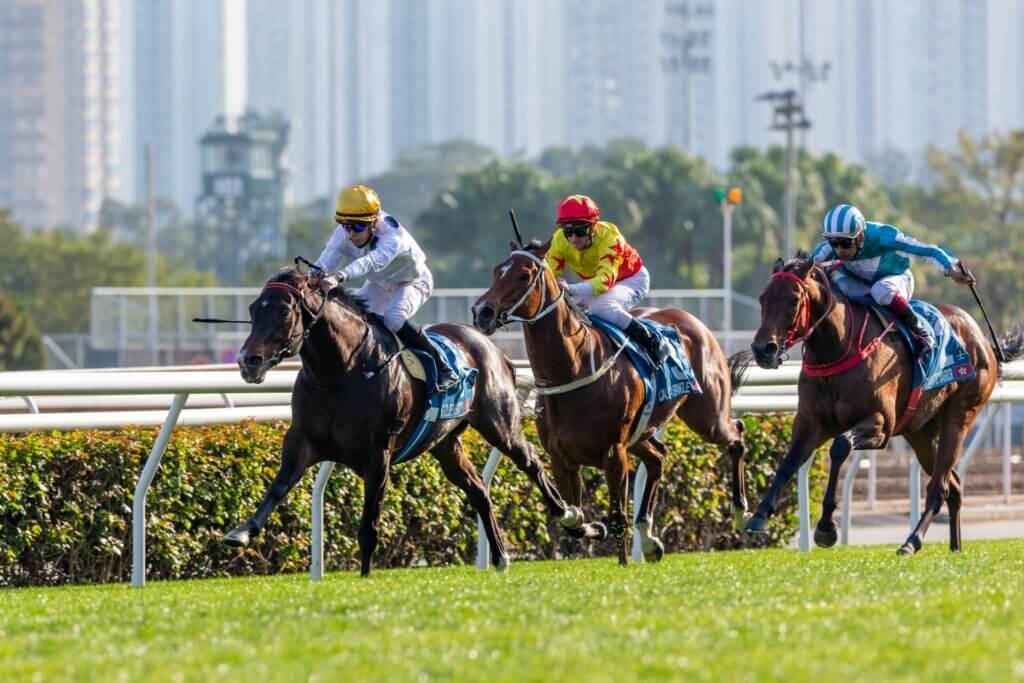
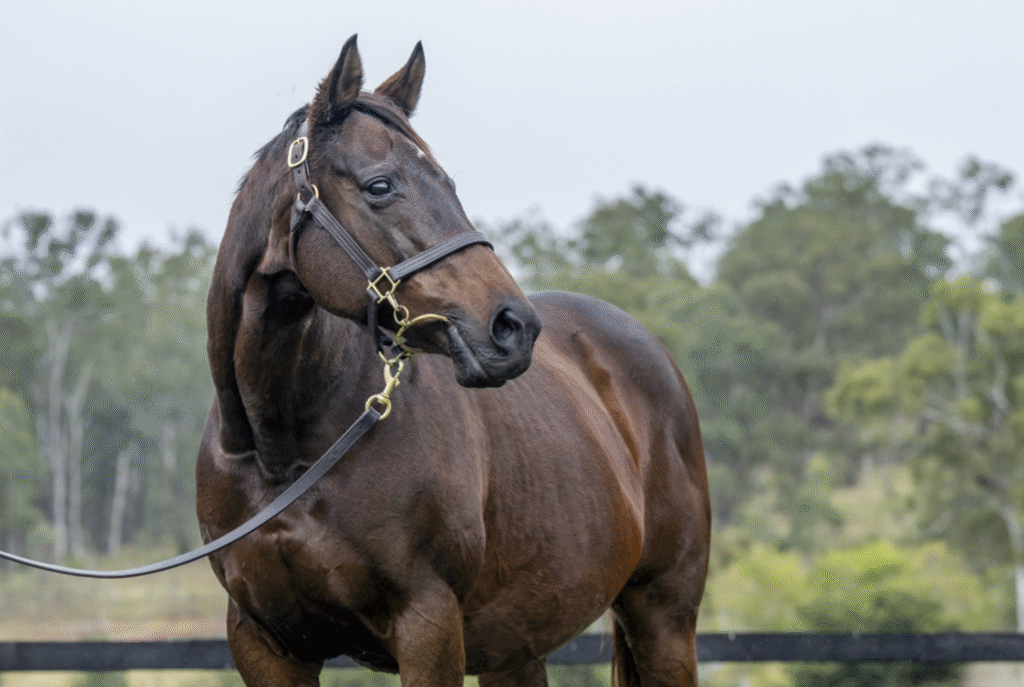
As Golden Sixty raced to success after success at Sha Tin, Gaudeamus continued to produce foals in Queensland, including the stakes-placed Rainbow Connection two years after Golden Sixty.
Her following foal was Golden Sister, a daughter of champion Australian two-year-old Capitalist who was bought by Hong Kong-based owners All Winners Thoroughbreds for AUD$425,000 (USD$278,000) at the Magic Millions Gold Coast Yearling Sale in 2021.
She sold amidst the Covid-19 pandemic which prevented a more international buying bench from being ringside, although Kentucky bloodstock agent Marie Yoshida – a long-established buyer for the Asian market – went through Australia’s arduous hotel quarantine procedures at the time to attend the January sale.
“I was at the sale working for one of my clients, Mr (Howard) Liang, and we actually looked at Golden Sister,” Yoshida told Idol Horse. “It was only a month after Golden Sixty had won his first Hong Kong Mile and people were starting to pay attention. Historically, Hong Kong performances hadn’t made much of a difference in the bloodstock arena – when Fairy King Prawn was at his best, for instance, buyers weren’t rushing to buy his siblings. There was something different with Golden Sixty, though, and so there was a lot of interest in his half-sister.
“For us, though, we were looking at fillies by the top stallions and Capitalist was still young. His first two-year-olds were only just stepping out and so he wasn’t established. So, while we loved her as a type, we missed out on her then but I followed her after that – I loved the name they chose! And she turned out to be good value, even better than we realised at the time.”
While Golden Sister never saw a racetrack herself, her owners were instead hatching a more ambitious plan – to send her to Kentucky for a mating with Medaglia d’Oro, whose shuttling days were long behind him. The result would be a three-quarter sibling to Golden Sixty, who has been raised at Yoshida’s Winchester Farm.
“A few years ago, her owners had started to formulate the plan to potentially visit Medaglia d’Oro but they didn’t know who to ask or where to go,” Yoshida said. “They asked us for our advice and then if they could base her here and that is a role we are happy to fulfil for owners abroad, we are always happy to help – we see ourselves as ambassadors and happy to facilitate that.
“She was still quite young, I think she had only just turned three when she arrived, but we could breed with her. Medaglia d’Oro was not cheap, this was early in 2023 and his fee was US$100,000, but thanks to Darley America, we managed to get her in foal and she produced this very nice yearling colt that goes to Keeneland.
“On August 5, she delivered another baby boy by Medaglia d’Oro – this time to southern hemisphere time – and hopefully she will be able to visit him again in the weeks ahead, again to southern hemisphere time. We are so thankful to Darley America that they are making him available, they don’t have to do that. This three-quarter brother, though, is such a rare opportunity for northern hemisphere buyers wherever they are based – Medaglia d’Oro colts are so rare and especially one with a pedigree like this.”
The Gaudeamus story will come full circle, 20 years on, when Hip 345 enters the Keeneland sales ring on September 9. And the eyes of the world will be focused on that colt and the bidding war that is sure to ensue.
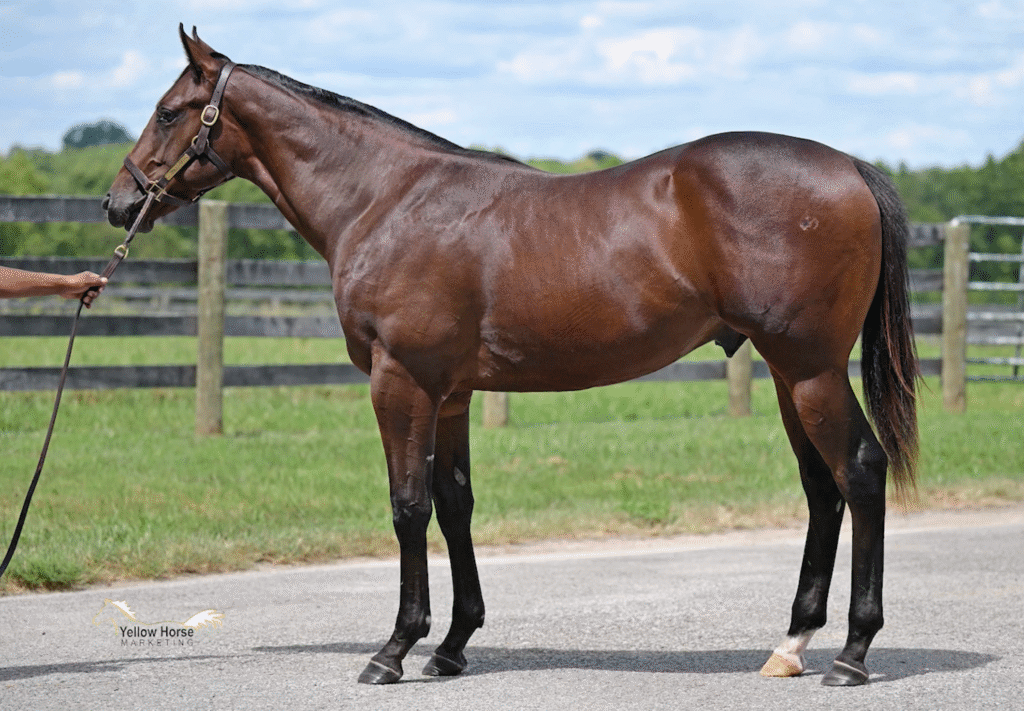
So where will he go? Will a big-spending American be able to hold off his global rivals? Will a Japanese buyer emerge, continuing their assignment of upgrading the country’s international bloodlines? Or could he be bound for Hong Kong in a bid to match the feats of Golden Sixty?
“I’m sure there will be American buyers who want to secure a potential stallion prospect,” Yoshida said. “I think there may be some interest from Japan and I’m sure Hong Kong permit holders may look at him too. He could legitimately go anywhere – physically, he’s that type of colt.”
While American-bred horses typically make up less than one per cent of Hong Kong’s population – as of mid-August, there were only 10 horses who were foaled in the United States from a population exceeding 1,300 – they have punched above their weight there, particularly among the mile ranks. Between 2001-02 and 2008-09, Hong Kong’s champion miler was an American-bred, a record enhanced by Golden Sixty who may have carried the (AUS) suffix but had an American pedigree through and through.
One of Hong Kong’s first heroes of the 21st century was Electronic Unicorn, who was purchased by former champion trainer John Moore at Keeneland September in 1997 but shifted to Ricky Yiu before he raced. Named Horse of the Year in 2001-02, he was a four-time Hong Kong Group 1 winner including the 2003 Champions Mile.
Months before Gaudeamus sold at Keeneland, the US-bred Bullish Luck broke Hong Kong hearts when he handed local hero – and his Tony Cruz-trained stablemate – Silent Witness his first ever defeat in the G1 Champions Mile. It was one of four Hong Kong Group 1 wins for Bullish Luck, while he also won the G1 Yasuda Kinen in Japan and he became Hong Kong’s only G1 Dubai World Cup placegetter when third to Invasor in 2007.
Bullish Luck was succeeded as Hong Kong’s champion miler by Good Ba Ba, who himself was a Keeneland graduate. Bought by Cash Asmussen on behalf of the Hong Kong Jockey Club, who then sold him at their sale to owner John Yuen, Good Ba Ba rose from griffin company to become the first horse to win the G1 Hong Kong Mile three times. He stood alone in that feat until Golden Sixty won his third Hong Kong Mile in 2023.
Another icon of the Hong Kong International Races is California Memory, sold at Keeneland in 2007, who became the first two-time winner of the city’s richest race, the G1 Hong Kong Cup. The ghostly grey remained the only multiple winner until the world’s highest-earning thoroughbred of all time, Romantic Warrior, joined him.
Ironically, California Memory’s third dam was Konafa – just like Golden Sixty and Golden Sister. And California Memory is a horse with which Yoshida is very familiar, having secured him for owner Howard Liang.
“It is such a nice coincidence,” Yoshida said. “These female families are like gold dust and to see what the Konafa family has achieved all over the world, it is very special.”
Yoshida’s Winchester Farm will not be the only North American-based entity watching intently as the colt goes through the ring.
Their Lexington neighbours, Mt Brilliant Farm, purchased Golden Sixty and Golden Sister’s Wootton Bassett half-sister Social Graces for AUD$1 million (USD$655,000) at Magic Millions last year. She is currently in training in Australia with Gai Waterhouse and Adrian Bott.
So where will the next chapter of this extraordinary international story be written? All will be revealed in the Keeneland sales ring on September 9. ∎
